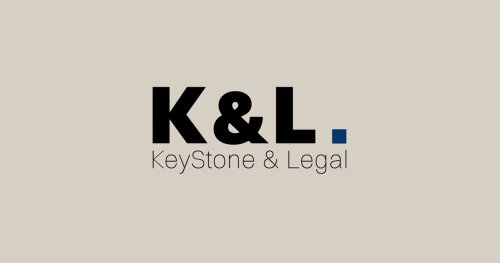Best Health Care Lawyers in Seoul
Share your needs with us, get contacted by law firms.
Free. Takes 2 min.
List of the best lawyers in Seoul, South Korea
About Health Care Law in Seoul, South Korea
Health care in Seoul, South Korea is regulated by a complex system of laws and regulations that govern the provision of medical services, insurance coverage, patient rights, and more. It is important to understand these legal frameworks to ensure that individuals receive appropriate care and treatment.
Why You May Need a Lawyer
Individuals may need a lawyer in health care matters for various reasons, such as medical malpractice claims, insurance disputes, patient rights violations, healthcare fraud investigations, and more. A lawyer can provide legal advice, represent individuals in negotiations or court proceedings, and help protect their rights and interests.
Local Laws Overview
In Seoul, South Korea, health care laws are primarily governed by the Medical Service Act and the National Health Insurance Act. These laws regulate the licensing and accreditation of healthcare providers, insurance coverage, patient rights, privacy protections, and more. It is important to be aware of these laws to ensure compliance and protect one's legal rights in health care matters.
Frequently Asked Questions
1. Can I sue a healthcare provider for medical malpractice in Seoul, South Korea?
Yes, you can pursue a medical malpractice claim against a healthcare provider in Seoul, South Korea if you believe that you have been harmed due to their negligence or misconduct. It is important to consult with a lawyer to assess the viability of your claim and navigate the legal process.
2. What are my rights as a patient in Seoul, South Korea?
Patients in Seoul, South Korea have the right to receive quality medical care, obtain full and accurate information about their diagnosis and treatment options, give informed consent for medical procedures, and access their medical records. If you feel that your rights have been violated, you may seek legal help.
3. How does health insurance work in Seoul, South Korea?
Health insurance in Seoul, South Korea is primarily provided through the National Health Insurance program, which covers a significant portion of medical expenses. Private health insurance is also available for additional coverage. Understanding the terms and conditions of your insurance policy is essential for accessing healthcare services.
4. Can I challenge a denial of health insurance coverage in Seoul, South Korea?
Yes, you have the right to challenge a denial of health insurance coverage in Seoul, South Korea. You may appeal the decision through the insurance company's internal grievance process or seek legal assistance to escalate the matter further.
5. What are the legal requirements for healthcare providers in Seoul, South Korea?
Healthcare providers in Seoul, South Korea must comply with licensing and accreditation requirements, uphold professional standards of care, protect patient confidentiality, inform patients about their rights and treatment options, and adhere to relevant laws and regulations governing their practice.
6. How can I report healthcare fraud in Seoul, South Korea?
If you suspect healthcare fraud in Seoul, South Korea, you can report it to the Korea Health Insurance Review and Assessment Service (HIRA) or consult with a lawyer who specializes in health care law. Providing evidence and documentation of the alleged fraud is crucial for investigations.
7. Are there specific laws governing medical research and experimentation in Seoul, South Korea?
Yes, medical research and experimentation in Seoul, South Korea are subject to regulations under the Bioethics and Biosafety Act, which sets guidelines for informed consent, participant protections, research protocols, and ethical considerations. Researchers and institutions must comply with these laws to conduct studies.
8. Can I request a second opinion from another healthcare provider in Seoul, South Korea?
Yes, patients in Seoul, South Korea have the right to seek a second opinion from another healthcare provider to confirm a diagnosis, discuss treatment options, or address any concerns about their medical care. It is important to communicate with your primary provider and follow appropriate procedures for obtaining a second opinion.
9. How can I protect my privacy and medical records in Seoul, South Korea?
To protect your privacy and medical records in Seoul, South Korea, healthcare providers must obtain your consent before sharing personal information, maintain confidentiality, secure electronic data, and comply with the Personal Information Protection Act. You have the right to access and request corrections to your medical records as well.
10. What are the legal implications of medical consent in Seoul, South Korea?
Medical consent in Seoul, South Korea requires healthcare providers to inform patients of the risks, benefits, and alternatives to proposed treatments, procedures, or surgeries, obtain consent from competent individuals, and respect patients' autonomy and decision-making capacity. In cases of incapacity, legal guardians or family members may provide consent on behalf of the patient.
Additional Resources
For more information on health care laws and resources in Seoul, South Korea, you may contact the Ministry of Health and Welfare, the Korean Medical Association, the Korea Health Insurance Review and Assessment Service (HIRA), and legal aid organizations that specialize in health care law.
Next Steps
If you require legal assistance in health care matters in Seoul, South Korea, it is advisable to consult with a qualified lawyer who has experience in health care law. They can provide guidance, representation, and advocacy to help you navigate complex legal issues, protect your rights, and achieve a favorable resolution to your case.
Lawzana helps you find the best lawyers and law firms in Seoul through a curated and pre-screened list of qualified legal professionals. Our platform offers rankings and detailed profiles of attorneys and law firms, allowing you to compare based on practice areas, including Health Care, experience, and client feedback.
Each profile includes a description of the firm's areas of practice, client reviews, team members and partners, year of establishment, spoken languages, office locations, contact information, social media presence, and any published articles or resources. Most firms on our platform speak English and are experienced in both local and international legal matters.
Get a quote from top-rated law firms in Seoul, South Korea — quickly, securely, and without unnecessary hassle.
Disclaimer:
The information provided on this page is for general informational purposes only and does not constitute legal advice. While we strive to ensure the accuracy and relevance of the content, legal information may change over time, and interpretations of the law can vary. You should always consult with a qualified legal professional for advice specific to your situation.
We disclaim all liability for actions taken or not taken based on the content of this page. If you believe any information is incorrect or outdated, please contact us, and we will review and update it where appropriate.














